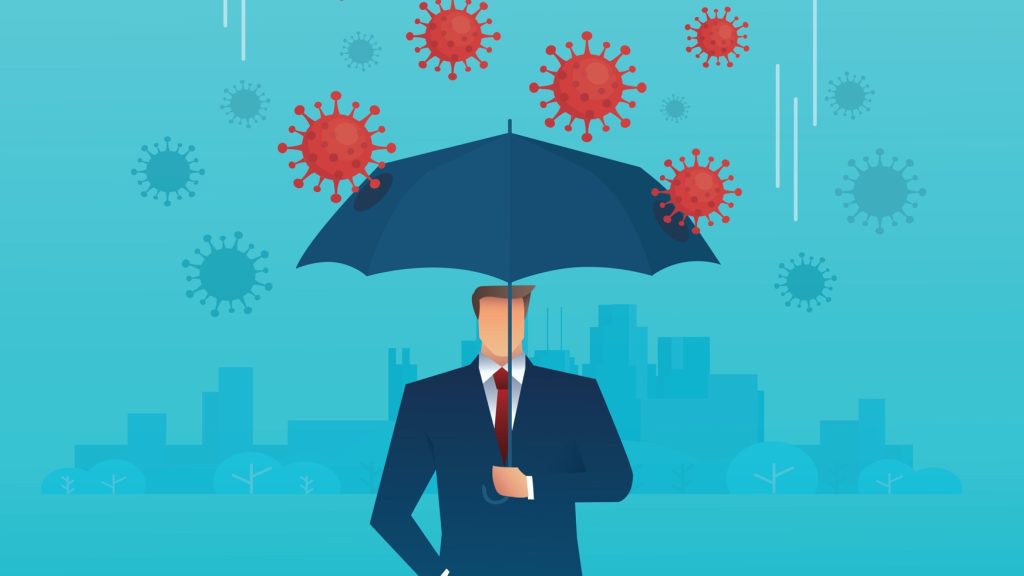COVID-19 had significant effects on the insurance industry. Several types of insurance, including health, life, travel, business interruption, and more were severely impacted as a direct result of the pandemic. Here are some of the ways in which COVID-19 impacted the insurance industry:

Health Insurance
- Increased healthcare claims: The pandemic led to a surge in medical claims as people sought testing, treatment, and hospitalization for COVID-19.
- Telehealth adoption: Many health insurers expanded coverage for telehealth services to accommodate the increased demand for remote medical consultations.
- Shift in priorities: Insurers refocused on pandemic-related coverage and services, including testing and vaccine administration.
Life Insurance
- Changes in underwriting: Life insurance companies adjusted their underwriting processes to account for the increased risk associated with COVID-19, leading to stricter requirements in some cases.
- Higher demand: The pandemic prompted many individuals to consider their mortality, leading to an increase in demand for life insurance policies.
Travel Insurance
- Reduced travel coverage: Many travel insurance policies excluded pandemic-related claims, such as trip cancellations or interruptions due to COVID-19.
- Changes in policy terms: Travel insurance providers updated policy terms and conditions to adapt to the changing landscape of travel during the pandemic.
Business Interruption Coverage
- Controversy and legal battles: Many businesses sought coverage for losses resulting from government-imposed lockdowns. This led to numerous legal disputes over whether business interruption insurance policies covered pandemic-related closures.
- Policy changes: Insurers began to offer pandemic-specific coverage as an add-on or separate policy option.
Workers Compensation
- Claims related to COVID-19: Workers’ compensation insurers experienced an increase in claims from employees who contracted the virus in the workplace.
Cyber Insurance
- Increased demand: With remote work becoming the norm, businesses saw a rise in cyber threats, leading to increased demand for cyber insurance to protect against data breaches and cyberattacks.
Auto Insurance
- Changes in driving habits: Lockdowns and remote work led to reduced commuting and changes in driving patterns, which influenced auto insurance claims and premiums.
Regulatory Changes
- Governments and regulatory bodies introduced new rules and guidelines to address insurance-related issues arising from the pandemic.
Digital Transformation
- The pandemic accelerated the digital transformation of the insurance industry, with insurers embracing technology for underwriting, claims processing, and customer service.
The impact of COVID-19 on the insurance industry has evolved over time as the pandemic unfolded. It highlighted the importance of adaptability, risk assessment, and the need for insurance.

